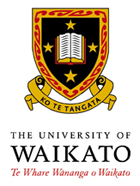Why study in New Zealand?
Published: 5 November 2025
When choosing to study in New Zealand, you can be confident that any institution you consider will meet the highest education standards. In fact, all of New Zealand's universities adhere to global standards regularly tested and monitored by the government to ensure consistent quality and standards.
As a Lisbon Recognition Convention member, New Zealand's certificates, diplomas, and degrees are also recognized in all 50 participating countries. But beyond academics, the country is known as the "Land of the Long White Cloud' due to its unspoiled scenery. The breathtaking landscapes have always been a recurring topic whenever Filipino students recount their experiences in the country.
New Zealand also offers a unique cultural experience. Immerse yourself in the Maori culture, explore the country's rich history, and enjoy the friendly and welcoming atmosphere of its communities.
With its mix of opportunities, culture, as well as a safe and peaceful environment, it's no wonder why New Zealand is ranked as a top study abroad destination in a survey of over 20,000 international students.
New Zealand Education System
New Zealand's education system is one of the best in the world, consistently ranking well by global standards. The country's progressive education system combines traditional teaching principles with innovation and technology, culminating in globally recognized and respected qualifications.
Apart from its natural beauty, New Zealand is also home to many world-standard schools and universities that offer a safe and relaxed environment with abundant activities that international students can participate in after class.
Classroom sizes in New Zealand universities are often smaller than in other Western countries, allowing students to receive more personalized attention from their professors. In addition, the support for international students goes beyond the classroom, with the New Zealand Government being the first in the world to create a code of practice that outlines a standard of care for international students both in the classroom and outside of it.
Top Universities in New Zealand
New Zealand is home to a world-class education system that attracts international students from all around the globe.
Universities in New Zealand are renowned for their high academic standards and strong research focus, ensuring you receive a quality education that's valued by employers worldwide. All eight of its universities consistently rank in global university rankings, such as the QS World University Rankings, reflecting their commitment to academic excellence and research impact.
You can explore a full list of top universities in New Zealand that continue to attract Filipino students seeking world-class education and global exposure.
NZ universities: Upcoming intakes
If you aim to study in New Zealand, it is helpful to understand New Zealand's academic intake period in order to time your application appropriately. There are two general intake periods in New Zealand:
January intake
Happening at the beginning of the year, this option is perfect for those who prefer to kick things off first thing in the new year. However, the campus may be quieter during this period, and there might be limited courses or university options available.
However, this means that there is less competition for your application to your preferred course. The application deadline for this intake typically closes between August and September of the preceding year, so aim to submit your application by then to secure your spot.
July intake
The July intake, also known as the Spring semester, is more popular and more well-received. There are more options when it comes to available programs and university options, as this is typically considered to be the start of the school year. This is almost the same as the Philippine academic calendar, which usually begins in August.
By choosing the July intake, you’ll get to experience a vibrant and bustling campus, as well as partake in extracurricular activities or student clubs that appeal to you. You will need to submit your applications by February and March of the same year, so give yourself ample time to polish your application to perfection.
Choosing the right intake period
Usually, Filipino students choose an intake period based on a range of factors, such as preferred choice of study, the availability of a program in a particular university, and academic records.
After understanding the essential information on New Zealand universities' intake periods, your path to studying in New Zealand has never been clearer and more manageable.
H2 New Zealand Universities Entry Requirements and Eligibility for Filipino students
Filipino students who wish to study in New Zealand must meet several entry and eligibility requirements depending on their chosen course and level of study.
For undergraduate programs, students generally need to have completed Senior High School (Grade 12) under the K–12 education system or an equivalent qualification. Some universities may require completion of a foundation program or diploma to meet academic entry standards. Those applying for postgraduate courses, such as a master's degree, need a relevant bachelor’s degree from a recognized university.
Students will also need to demonstrate English language proficiency through tests such as IELTS, with most courses expecting an IELTS score between 6.0 and 6.5.
Admission Process for Filipino Students Applying to New Zealand Universities
The admission process for Filipino students applying to New Zealand universities is straightforward. After selecting your preferred course and institution, submit an application either directly through the university’s online portal or via an authorized education agency such as IDP. Required documents typically include academic transcripts, IELTS test results, a personal statement, and a copy of the passport.
Once accepted, you will receive a letter of acceptance, which is needed to apply for a New Zealand student visa. This is the trickiest and most stressful part of studying abroad, but don’t worry; your IDP counselor will be with you every step of the way.
After securing your visa, you can begin making travel and accommodation arrangements for your studies in New Zealand.
New Zealand Visa Requirements for Filipino Students
You will need to apply for the right type of New Zealand study visa in order to have a trouble-free entry. There are a few types of study visas available, and here are some examples:
Student visa type | Who it is for | Length of stay | Visa Processing Time |
Fee-paying student visa | The Fee-Paying Student Visa suits students looking to study full-time in New Zealand. | Up to 4 years, but the duration normally corresponds to the length of your study. | 6 weeks |
Pathway student visa | You can study full-time up to 3 courses, one after the other, on a single student visa. The visa is only available for study with approved Pathway Education Providers and for some courses of study. | Up to 5 years | 6 weeks |
Exchange student visa | If you have been accepted into an approved student exchange scheme and are outside New Zealand, you can apply for this visa to study full-time. | Up to 4 years | 4 weeks |
Foreign government-supported student visa | If you have a foreign government loan or scholarship, you can apply for this visa to study full-time in New Zealand for more than 3 months. | Up to 4 years | 5 months |
The student visa application fee and process can vary per visa type. You can find out more about each of the different types of visa and how to apply on the New Zealand immigration page.
Explore in New Zealand
Hover over the city cards to discover more!
Cost of studying in New Zealand for Filipino students
Planning your international education in New Zealand will require proper financial planning. While studying in New Zealand comes with relatively more affordable rates compared to the UK or the USA, it can still be quite costly compared to studying locally in the Philippines.
The costs of studying in New Zealand will vary depending on the school, course, and degree program you enroll in.
On average, the typical annual university fee for undergraduate programs costs between NZ$20,500 and NZ$25,000. For postgraduate programs, it can cost anywhere between NZ$20,500 and NZ$29,000 annually.
Typical study expenses also include student visa fees, accommodation fees, health coverage, and study materials. Creating a well-structured budget that includes all miscellaneous expenses before you depart will help you manage your finances efficiently and make the most of your study experience in New Zealand.
New Zealand scholarship opportunities for Filipino students
In planning for the budget of your overseas education, it can be helpful to explore scholarships for your New Zealand studies.
Universities and schools in New Zealand offer a range of scholarships, bursaries, and grants to international students to help them fund their studies. Filipino students can apply for institution-specific scholarships that recognize academic excellence, leadership potential, or extracurricular achievements.
In addition, there are government-funded scholarships, such as the New Zealand Scholarships (NZS) and Commonwealth Scholarships, which cover tuition fees, living allowances, and travel costs. Various public and private organizations in the Philippines and New Zealand also provide financial assistance to help ease the cost of studying abroad, making it more accessible for Filipino students to pursue world-class education in New Zealand.
It is recommended to read up on everything you need to know about New Zealand scholarships and financial aid available for Filipino students.
Cost of living in New Zealand for international students
The cost of living in New Zealand is something you need to consider in your study abroad journey. These expenses are on top of your cost of study, and can include groceries and dining, phone and internet, public transportation, and miscellaneous entertainment costs.
For students from the Philippines, it's helpful to compare the living expenses for international students in New Zealand with the living expenses you might be accustomed to in the Philippines. Generally, the cost of living in New Zealand can be higher than in the Philippines, especially in major urban centers like Auckland and Wellington. This information can also help students form a clearer decision on where to study.
Post-Study Work opportunities and development for Filipino students
New Zealand offers excellent post-study work opportunities for Filipino students who wish to gain international experience after completing their studies. Graduates can apply for a Post-Study Work Visa*, which allows them to work in New Zealand for up to three years, depending on their qualification level and study location.
This provides valuable exposure to New Zealand’s workforce and enhances career development. The country’s strong industries, such as agriculture, technology, engineering, healthcare, and business, also offer diverse employment prospects for skilled graduates looking to build global careers.
*Please note that IDP does not provide post-study work visas for students.
H2 Live life in the FastLane
Want to check if you're eligible to study at your dream university in New Zealand? With IDP Fastlane you can get an in-principle offer in seconds!
This special IDP feature will guide you to programs most suited for you, based on your goals, and what you prefer. Enter your preferences to discover and shortlist courses to study in New Zealand that align with your aspirations. Provide your academic details and you’re all set to receive a response from a university in just seconds!
View FastLane-enabled universities to fast-track your NZ study journey today.
H2 Next steps for Filipino students to study in New Zealand
Choosing to study in New Zealand is an opportunity to experience world-class education in a safe, inclusive, and inspiring environment. With its globally recognized qualifications, welcoming communities, and breathtaking landscapes, New Zealand offers Filipino students the chance to grow both personally and professionally.
Whether you’re drawn to its innovative universities, practical education system, or post-study work opportunities, your journey begins with proper planning and guidance.
Speak with an IDP counsellor today to explore your options, shortlist your ideal courses, and take the first step toward studying in New Zealand with confidence.

Send funds securely with money transfer
Explore safe, convenient and fast payment solutions with our market leading partners.

Find your home away from home
We’ll help you discover student accommodation that makes you feel comfortable and at home, no matter where you are.
Cost of living calculator
Estimate how much you will need to cover your expenses including cost of living comparison for various country and accommodation options.
Can’t decide where to study?
Answer 5 quick questions to get personalised content and course recommendations


















